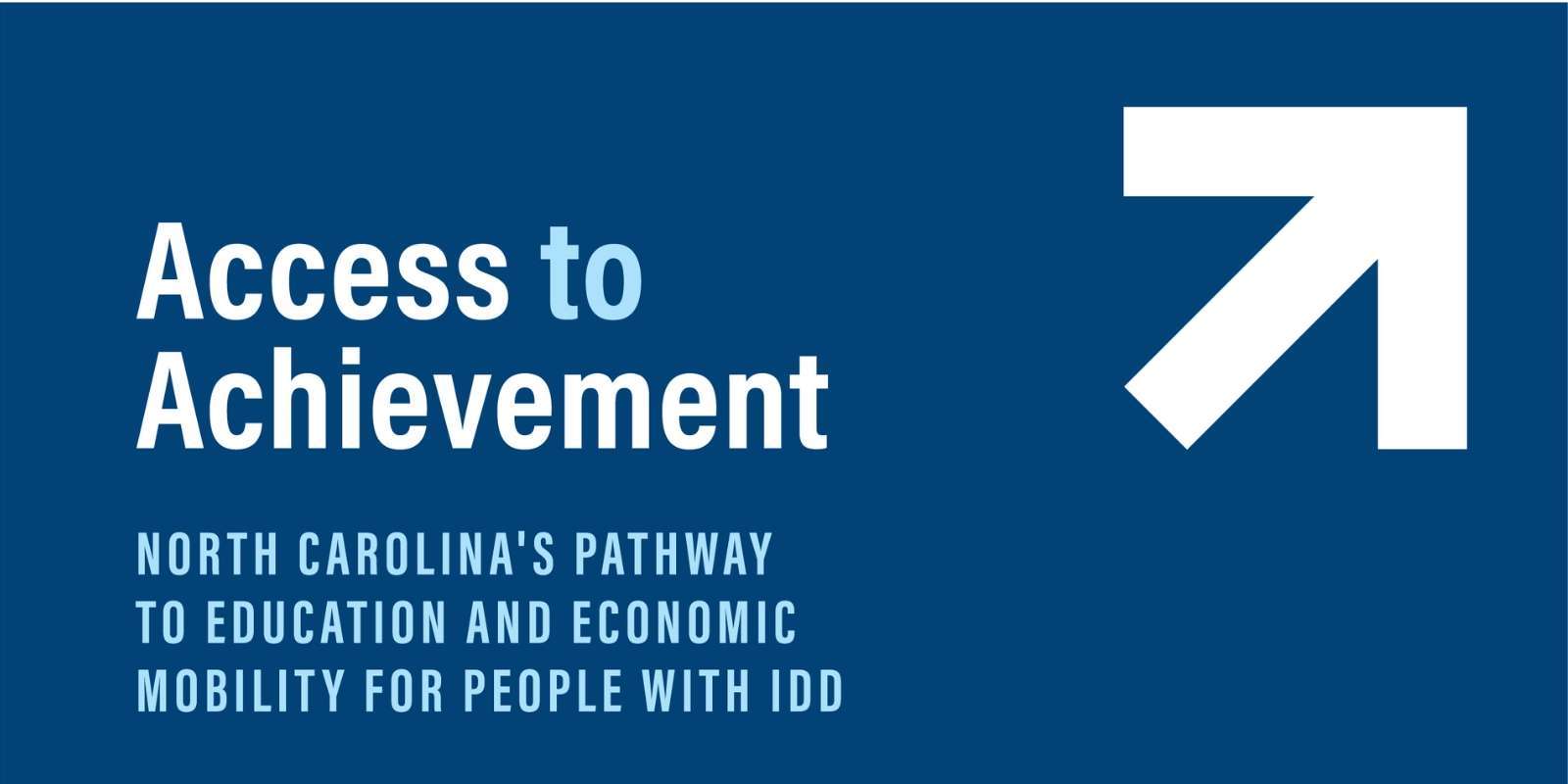Access to Achievement

To enable individuals with IDD to engage in competitive, sustainable employment.
Need more support?
Sign up for additional support available from Access to Achievement
Reach Out Today
ACC has been selected by the North Carolina Community College System to be part of
a state initiative to provide inclusive post-secondary education, leading to employment
for individuals with intellectual and developmental disabilities (IDD).
Access to Achievement transforms lives by creating accessible educational pathways for individuals with IDD across North Carolina, empowering them to achieve independence, gain workforce skills, and participate fully in their communities.
|
WHO DO WE SERVE?
-
Students who Self identify
-
No documentation required
-
-
IDD/Neurodiverse
-
Students with Autism, ADHD, Learning Disabilities, Intellectual Disabilities, Developmental Disabilities, among others.
-
Enable individuals with IDD to engage in competitive, sustainable employment
-
Provide opportunities for micro-credentials or other credentials that lead to increased employment outcomes.
-
Provide training and educational components that improve employability skills.
-
Provide on-the-job training and apprenticeships.
We will help determine the best path for you and your needs. Some of the paths we offer assistance with is:
-
Workforce Development
-
Curriculum
-
Career Explorations
-
College and Career Readiness
-
Or a Hybrid path of courses across programs
ACADEMIC
-
Accessibility Services
-
Tutoring Services
-
PACE
-
TRIO
-
Faculty
-
Peers
ASSISTIVE TECHNOLOGY
FINANCIAL AND LOGISTICAL
-
ACC Financial Aid
-
Advising
-
EIPD Services (formerly known as Vocational Rehabilitation)
-
Transportation
-
Registration
SOCIAL & EMOTIONAL
-
Student Support Services, SGA, Campus Life & Student Engagement
6 Areas of Support:
-
Best practices in vocational training, Financial aid and benefits counseling, Integrating assistive technology, Maximizing access, Increasing inclusivity; Needs assessment, marketing and evaluation
Questions? Contact Us.
Laura Manigrasso
Advisor, Access to Achievement
lamanigrasso677@alamancecc.edu
336-506-4015





